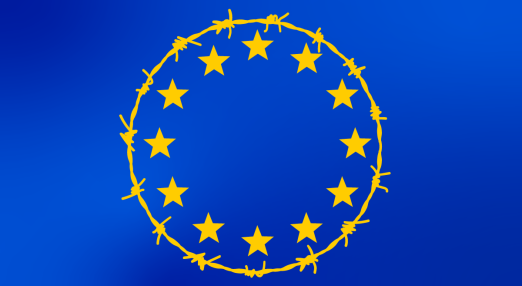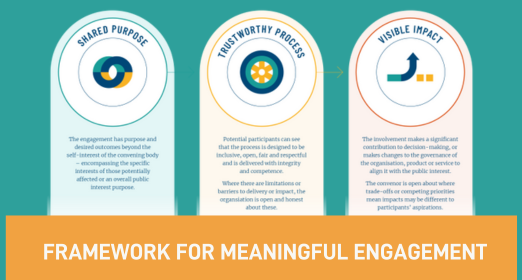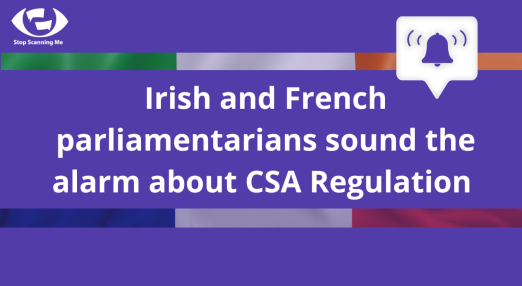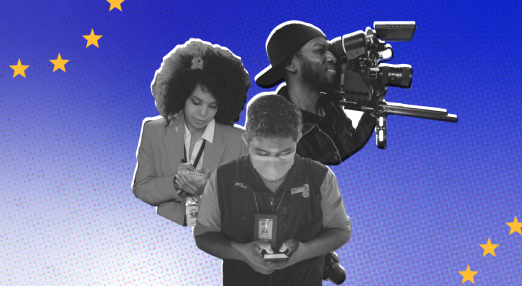Our work
EDRi is the biggest European network defending rights and freedoms online. We work to to challenge private and state actors who abuse their power to control or manipulate the public. We do so by advocating for robust and enforced laws, informing and mobilising people, promoting a healthy and accountable technology market, and building a movement of organisations and individuals committed to digital rights and freedoms in a connected world.
Filter resources
-

Position Paper: The Cyber Resilience Act, how to make Europe more digitally resilient?
If the EU’s new Cyber Resilience Act truly wants to improve the EU’s digital security landscape, it must do more than introduce an industry certification scheme: true IT security requires long-term software support, transparent and safe vulnerability handling and disclosure, and an acknowledgment of the essential role of free and open software communities in Europe’s digitisation.
Read more
-

Member in the Spotlight: Free Software Foundation Europe
Free Software Foundation Europe is a charity that empowers users to control technology. Software is deeply involved in all aspects of our lives. Free Software gives everybody the rights to use, understand, adapt, and share software. These rights help support other fundamental rights like freedom of speech, freedom of press, and privacy.
Read more
-

New Romanian cybersecurity law in force despite heavy criticism
The Constitutional Court of Romania declared the new cybersecurity law constitutional despite criticism from civil society about the repercussions for investigative journalists,security companies, and for regular citizens.
Read more
-

EU plan for international border data-sharing system “should not proceed”
The European Commission’s plan for a “security-related information sharing system between frontline officers in the EU and key partner countries” should be scrapped, says a paper signed by 10 organisations, including Statewatch, who warn that it may aid political repression and underpin human rights violations.
Read more
-

Where artificial intelligence and climate action meet
The use of artificial intelligence (AI) has a major influence on climate action, climate change mitigation and the work of environmental defenders. It offers potential benefits, for example when it is used to enhance high-resolution mapping of deforestation, coral reef loss, and soil erosion. On the other hand, it poses a threat to the climate and its defenders when it leads to extraction of natural resources and when automated online surveillance is used to enhance the power of states and corporations to suppress climate activism and grassroots resistance.
Read more
-

Moving from empty buzzwords to real empowerment: a framework for enabling meaningful engagement of external stakeholders in AI
The use of artificial intelligence (AI) is accelerating. So is the need to ensure that AI systems are not only effective, but also fair, non-discriminatory, transparent, rights-based, accountable, and sustainable – in short, responsible
Read more
-

Irish and French parliamentarians sound the alarm about EU’s CSA Regulation
The Irish parliament’s justice committee and the French Senate have become the latest voices to sound the alarm about the risk of general monitoring of people’s messages in the proposed Child Sexual Abuse (CSA) Regulation.
Read more
-

EU plans allow Big Tech to exploit your medical records, without permission
The EHDS would make physicians and other medical professionals complicit in the forced commercialisation and monetisation of every aspect of your health without ever asking for your consent. It would destroy the Hippocratic oath of confidentiality by which every medical professional is supposed to be bound.
Read more
-

As AI Act vote nears, the EU needs to draw a red line on racist surveillance
The EU Artificial Intelligence Act, commonly known as the AI Act, is the first of its kind. Not only will it be a landmark as the first binding legislation on AI in the world – it is also one of the first tech-focused laws to meaningfully address how technologies perpetuate structural racism.
Read more
-

Retrospective facial recognition surveillance conceals human rights abuses in plain sight
Following the burglary of a French logistics company in 2019, facial recognition technology (FRT) was used on security camera footage of the incident in an attempt to identify the perpetrators. In this case, the FRT system listed two hundred people as potential suspects. From this list, the police singled out ‘Mr H’ and charged him with the theft, despite a lack of physical evidence to connect him to the crime. The judge decided to rely on this notoriously discriminatory technology, sentencing Mr H to 18 months in prison.
Read more
-

Spyware is only the tip of the iceberg: we need to protect journalists from all forms of surveillance
The EDRi network published amendments and recommendations for the European Media Freedom Act (EMFA) proposal calling for comprehensive protection for journalists, journalistic sources and human defenders against surveillance measures.
Read more
-

Police cameras won Big Brother Awards in Czechia
EDRi member in the Czech Republic Iuridicum Remedium handed out its anti-prizes for the eighteenth time in March 2023. 2022 was exceptional: one of the "awardees" came for the award, and the others had to express themselves under the pressure from the media.
Read more
